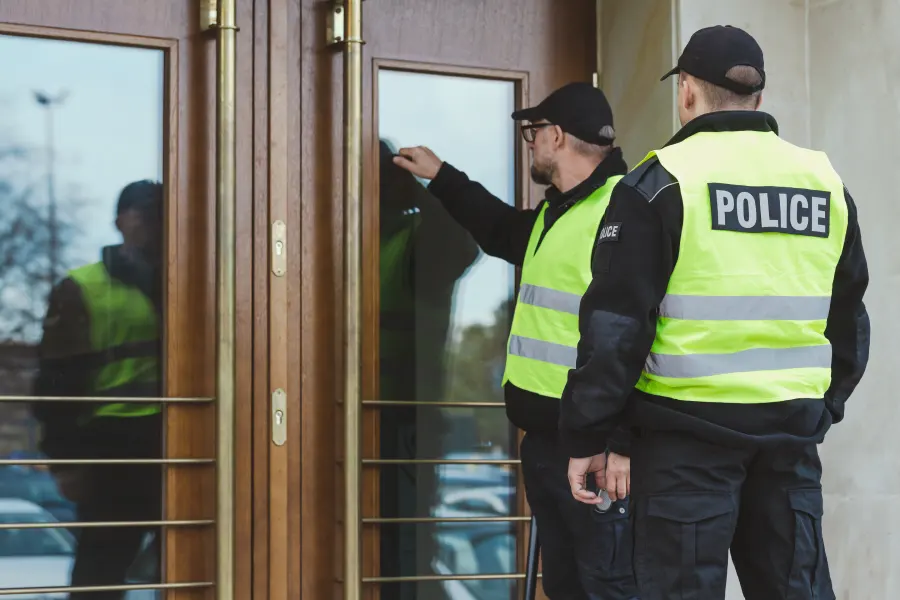Can domestic violence charges be dropped in Colorado? Not by the victim. Colorado follows a strict “no-drop” policy, which means prosecutors—not the alleged victim—decide whether charges move forward. Even if the victim recants or asks for the case to be dismissed, the district attorney is required to pursue prosecution if there’s enough evidence. At Prager Law, we help clients understand their rights, challenge weak or flawed cases, and explore all available legal options for dismissal, diversion, or reduction.
Related Read: First-Time Domestic Violence Charge in Colorado: How to Handle
Can Domestic Violence Charges Be Dropped in Colorado?
No, domestic violence charges in Colorado cannot be dropped solely at the victim’s request. The decision to dismiss charges rests exclusively with prosecutors, who operate under a state-mandated “no-drop” policy for domestic violence cases. However, charges may be dismissed if there is insufficient evidence, procedural errors, or through completion of diversion programs.
Domestic violence charges in Colorado carry serious immediate and long-term consequences. If you’re facing these charges, you likely have questions about whether domestic violence charges can be dropped in Colorado and what options you might have. The path through Colorado’s legal system in domestic violence cases can be particularly challenging due to the state’s strict approach to these offenses. Understanding the realities of how domestic violence cases are handled is the first step toward building an effective defense strategy.
This creates a significant distinction between what many people expect and the actual legal reality. Even when the alleged victim recants their story or explicitly asks for charges to be dropped, prosecutors in Colorado are specifically directed to continue pursuing these cases whenever possible.
Related Read: 5 of the Best Domestic Violence Lawyers in Denver, CO [2025]
Understanding Colorado’s Domestic Violence Laws
In Colorado, domestic violence isn’t technically a standalone criminal charge. Instead, it functions as a sentence enhancer added to underlying offenses when the alleged victim shares an intimate relationship with the accused. According to Colorado law, domestic violence is defined as “an act or threatened act of violence upon a person with whom the actor is or has been involved in an intimate relationship,” or any crime against property when used as a method of coercion, control, punishment, intimidation, or revenge.
Common underlying charges include assault, harassment, menacing, criminal mischief (property damage), and violations of protection orders. What makes Colorado’s approach distinctive is the mandatory arrest policy: when officers have probable cause to believe a domestic violence offense has occurred, they must make an arrest, removing discretion at the scene.
This policy results in many arrests in situations where both parties are mutually aggressive or where the situation is ambiguous. Once charged, the domestic violence designation triggers mandatory protection orders, specialized court procedures, and enhanced penalties that can include domestic violence treatment programs.
Who Has Authority to Drop Domestic Violence Charges
A persistent misconception is that victims can “press” or “drop” charges in domestic violence cases. In reality, victims file complaints with law enforcement, but it is prosecutors—representing the state of Colorado—who make all charging decisions. The district attorney’s office has exclusive authority to pursue or dismiss criminal charges.
Colorado’s approach is based on the understanding that domestic violence often involves complex relationship dynamics where victims may feel pressured to recant allegations or request charges be dropped, even when abuse has occurred. The court’s role is primarily to ensure due process and evaluate evidence presented by both prosecution and defense, not to independently initiate or dismiss charges.
Prosecutors consider multiple factors when evaluating domestic violence cases:
- Strength of available evidence
- Severity of the alleged offense
- Defendant’s criminal history
- Injury to the alleged victim
- Available witnesses
- Whether the alleged victim is cooperative
- Public safety considerations
While the victim’s wishes may be considered, they are just one factor among many in the prosecutor’s decision-making process.
Colorado’s “No-Drop” Policy and Its Implications
Colorado’s “no-drop” prosecution policy for domestic violence cases emerged from the recognition that domestic violence often follows cyclical patterns. This policy mandates that prosecutors pursue domestic violence cases regardless of the victim’s current stance or wishes to withdraw the complaint.
The policy aims to protect victims from potential coercion and to break cycles of violence by holding offenders accountable. However, it also means that even when reconciliation has occurred or the alleged victim admits to exaggeration or fabrication, the case typically proceeds.
According to data from Colorado’s judicial system, this approach results in a higher percentage of prosecuted cases compared to states with more discretionary policies. However, it doesn’t necessarily lead to higher conviction rates. Defense attorneys must adapt their strategies to this reality, focusing on evidentiary challenges and procedural issues rather than simply relying on victim non-cooperation.
Legal Strategies That May Lead to Dismissal
- Challenging evidence collection: Your attorney may identify improper police procedures, Miranda rights violations, or illegal searches that could render evidence inadmissible.
- Constitutional violations: If your due process rights were violated during arrest or investigation, this could form grounds for dismissal.
- Insufficient evidence: The prosecutor must prove all elements of the crime beyond a reasonable doubt. If they cannot establish the intimate relationship required for domestic violence designation or prove the underlying offense, the case may be dismissed.
- Procedural errors: Filing errors, jurisdiction issues, or speedy trial violations might create opportunities for dismissal motions.
- Self-defense claims: In cases where you were defending yourself, establishing this fact can undermine the prosecution’s case.
When prosecutors realize they face major challenges in meeting their burden of proof, they become more likely to consider dismissal or reduced charges, particularly when the alleged victim is uncooperative or evidence is weak.
Diversion Programs and Alternative Resolutions
Colorado offers several paths to potential dismissal through diversion programs and alternative resolutions:
Domestic violence diversion programs provide defendants with an opportunity to have charges dismissed upon successful completion of specified requirements. These typically include:
- Domestic violence treatment classes (usually 36 weeks)
- Regular court appearances
- Compliance with protection orders
- Substance abuse treatment (if applicable)
- Community service
- Probation supervision
Deferred judgment and sentencing agreements allow defendants to enter a guilty plea that is not immediately entered by the court. Instead, the court defers judgment for a specified period (usually 1-2 years) while the defendant completes similar requirements to those in diversion programs. Upon successful completion, the guilty plea is withdrawn, and the case is dismissed.
Eligibility for these programs generally depends on:
- Having no prior domestic violence convictions
- The non-serious nature of the alleged offense
- Prosecutor discretion and agreement
- Willingness of the defendant to acknowledge responsibility
- Court approval
These programs recognize that rehabilitation and treatment may better serve public safety and relationship health than conventional prosecution in appropriate cases.
Effective Legal Defenses in Domestic Violence Cases
- Self-defense claims – Demonstrate that you reasonably believed you were in danger of imminent harm and used proportional force to protect yourself. Colorado recognizes the right to defend oneself, even in domestic contexts.
- False accusations – Show motives for fabrication, such as advantage in divorce or custody proceedings, revenge, or attention-seeking. Inconsistencies in the alleged victim’s statements, lack of physical evidence, or witness testimony contradicting the allegations can support this defense.
- Alibi defenses – Prove you were elsewhere when the alleged incident occurred, supported by witnesses, electronic records, surveillance footage, or other documentation.
- Lack of evidence – Focus on the prosecutor’s inability to prove all elements of the crime beyond a reasonable doubt—a fundamental requirement in criminal cases.
The effectiveness of these defenses depends entirely on the specific circumstances of your case and the skill of your legal representation. Defense attorneys must thoughtfully evaluate which strategies align with available evidence and witness testimony. Each defense requires careful preparation and documentation to present convincingly in court proceedings.
The Importance of Specialized Legal Representation
Domestic violence cases in Colorado involve specialized procedures, unique legal considerations, and substantial consequences that require experienced legal representation. When selecting an attorney, look for:
- Experience specifically with domestic violence cases in Colorado counties
- Familiarity with local prosecutors and judges
- Track record of successful outcomes in similar cases
- Understanding of both criminal defense and family law implications
- Knowledge of available diversion programs and treatment options
- Clear communication style and realistic assessment of your case
These qualifications ensure your attorney has the specialized knowledge needed for domestic violence cases. A qualified attorney can negotiate effectively with prosecutors, recognizing when to push for dismissal versus when to pursue alternative resolutions. They understand how to gather important evidence, interview witnesses, and challenge the prosecution’s case. For expert assistance, consider consulting a Denver domestic violence lawyer.
When consulting potential attorneys, ask about:
- Their assessment of your specific case
- Potential defense strategies they would employ
- Their familiarity with domestic violence courts in your county
- Estimated costs and payment options
- Their approach to communication during your case
These questions will help you gauge both their expertise and whether their approach aligns with your needs. While legal representation involves a major expense, the potential consequences of conviction—including jail time, permanent criminal record, loss of firearm rights, employment difficulties, and custody impacts—make it a necessary investment.
Mandatory protection orders are automatically issued in all Colorado domestic violence cases upon arrest. These orders typically:
- Prohibit contact with the alleged victim
- Restrict you from returning to a shared residence
- Prevent third-party contact attempts
- May include temporary custody provisions for shared children
- Prohibit possession of firearms
Violations of protection orders constitute separate criminal offenses and dramatically worsen your original case. Strict compliance is key, even when the protected party initiates contact. All communication should be documented and should occur only through approved channels, such as through attorneys or as specifically permitted by court modification.
You can petition the court to modify protection order terms, but success depends on the specific circumstances and the alleged victim’s position. Your attorney can file motions for modification to address practical issues like property retrieval, child exchanges, or necessary communications.
Steps to Take Immediately After Being Charged
- Exercise your right to remain silent. Beyond providing basic identifying information, decline to answer questions without your attorney present.
- Document everything. Write down your recollection of events, potential witnesses, and any evidence that might support your case, such as text messages, emails, or social media posts from before or after the alleged incident.
- Strictly comply with all protection orders. Even seemingly innocent violations can result in additional charges.
- Preserve electronic evidence. Save relevant communications, but do not delete anything that might be considered evidence tampering.
- Avoid discussing your case with anyone except your attorney. Conversations with friends or family are not privileged and could be used against you.
- Seek mental health support through approved channels that won’t violate protection orders.
- Make arrangements for alternative housing if you’re prohibited from returning home.
- Continue meeting work and financial obligations to demonstrate stability and responsibility.
- Consult an experienced domestic violence defense attorney as soon as possible.
Facing domestic violence charges in Colorado presents significant challenges. By understanding the legal landscape, taking proactive steps, and seeking specialized legal representation, you maximize your opportunity for a favorable resolution. Remember that each case is unique and specific legal advice tailored to your situation is needed.
Do You Need Legal Help with Your Colorado Criminal Charges?
If you or someone you love is facing criminal charges in Colorado, don’t wait — contact the Colorado criminal defense lawyers at Prager Law today. Criminal charges are terrifying, and you deserve more than a cookie-cutter defense. At Prager Law, we provide personalized legal representation backed by real trial experience and insider knowledge of how prosecutors think.
Founding attorney Steve Prager is a former supervisor in the El Paso County District Attorney’s Office. He’s handled more than forty jury trials and trained new prosecutors — giving him rare insight into how cases are built and, more importantly, where they fall apart. That experience can be the difference between a conviction and a second chance.
Call 720-303-1044 or contact us online to discuss your case. We’ll review your situation, explain your legal options, and start building a strategic defense — one built just for you.



